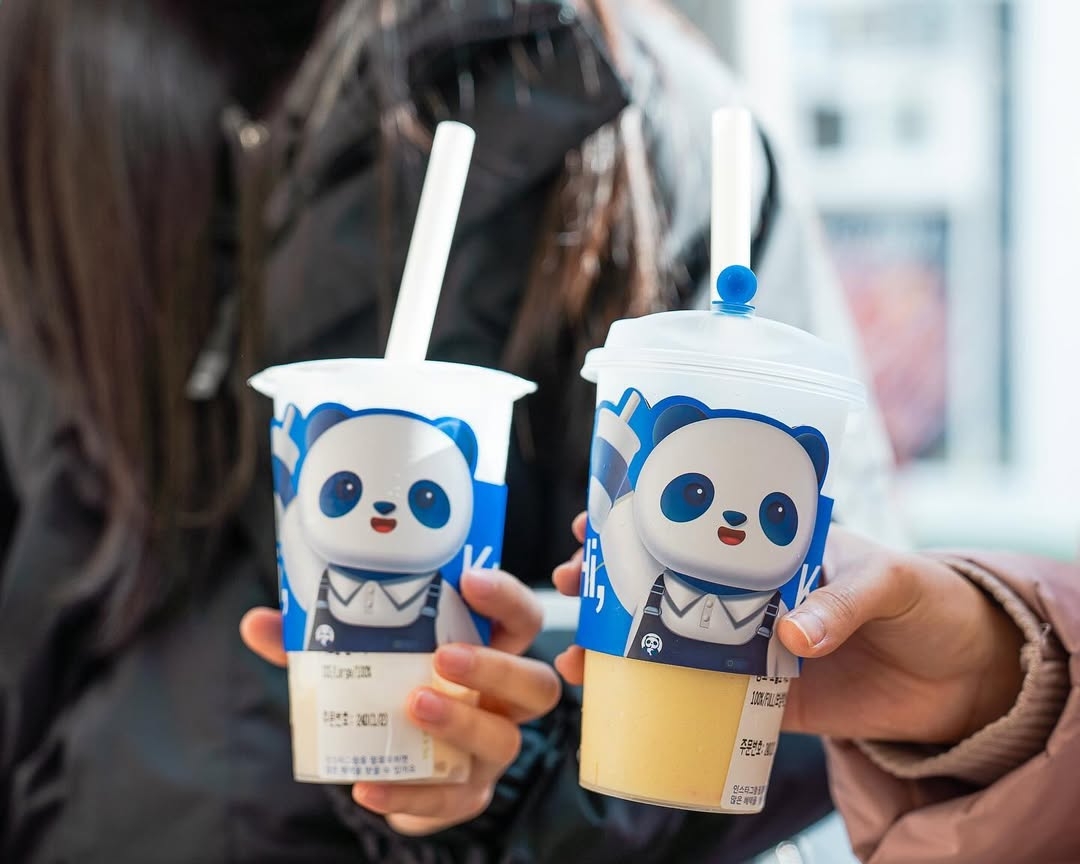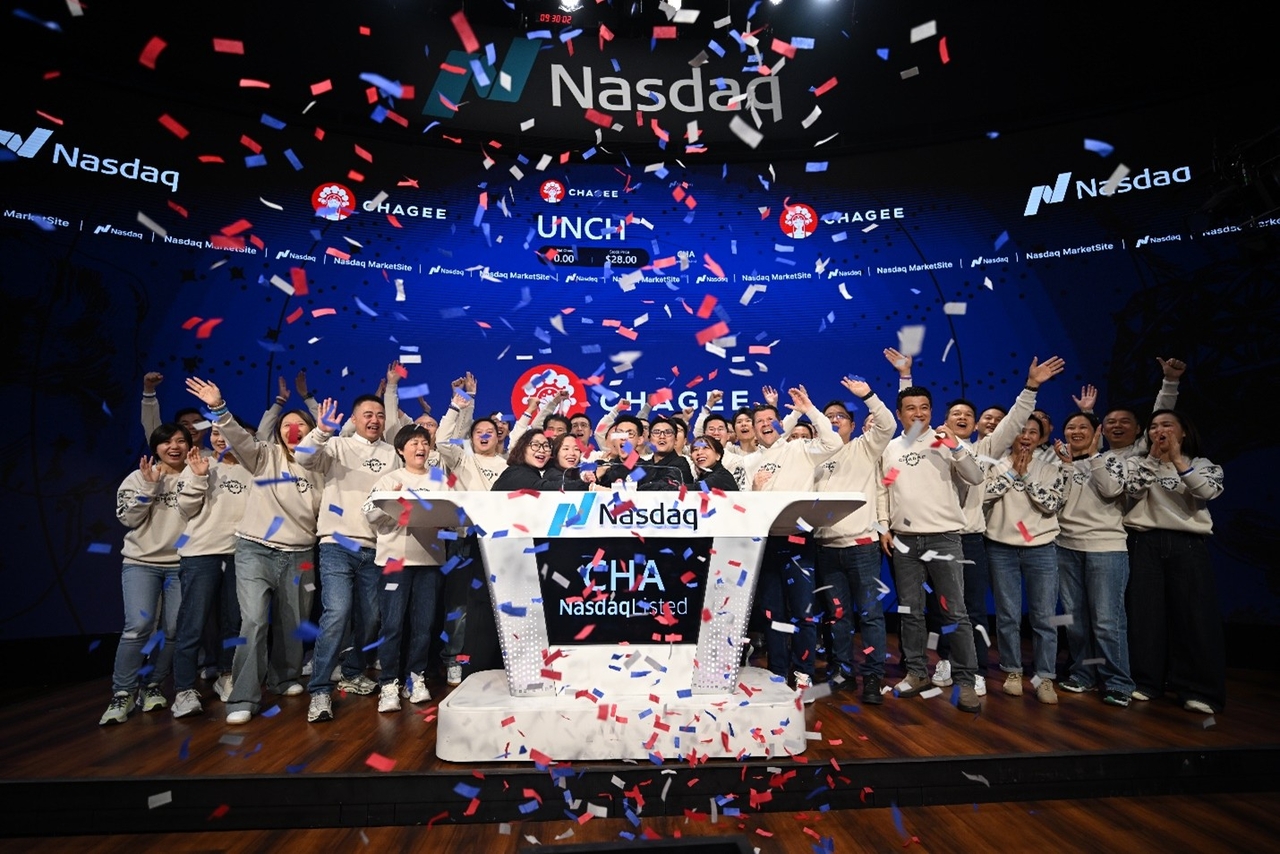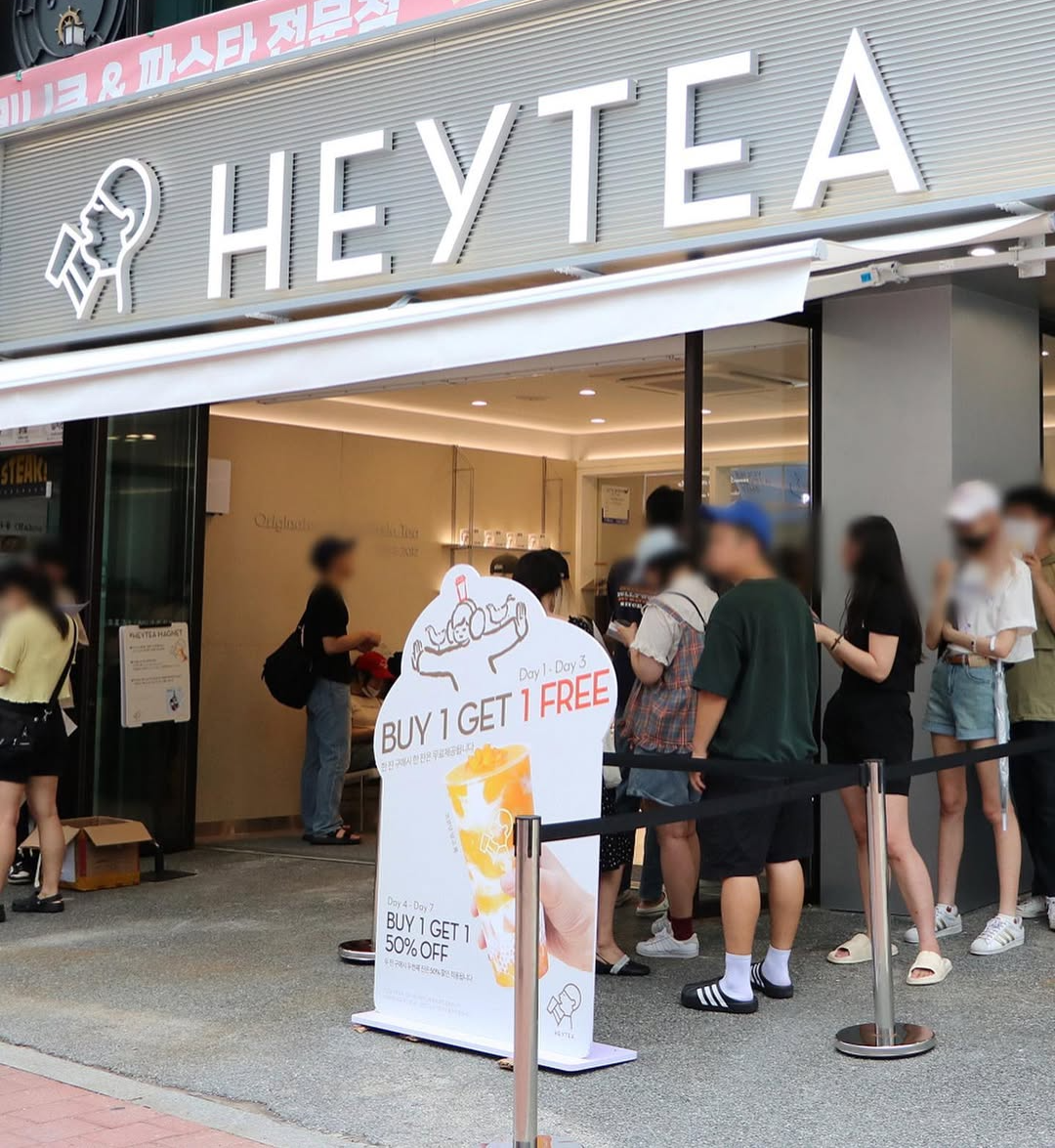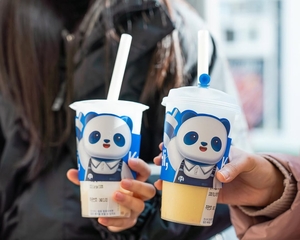Chinese milk tea giants bulk up overseas, as competition heats up at home
 ChaPanda beverages sold in Korea (ChaPanda Korea)
ChaPanda beverages sold in Korea (ChaPanda Korea) In recent years, Chinese bubble tea chains have seeped into Korea’s cafe landscape at a slow but steady pace, carving out a small yet vivid foothold in a market long dominated by coffee.
Korea may seem like just another waypoint in the global march of China’s tea giants, but industry officials say its “trend-sensitive and demanding” consumers make it a pivotal testing ground for global ambitions — so much so that a milk tea boom a few years ago has already fizzled out.
The most anticipated arrival is Chagee, often dubbed “the Starbucks of tea,” a Nasdaq-listed company that debuted in April with a $6.2 billion valuation and has rapidly scaled its business.
Chagee, known for coffee-style drinks, has built a premium image with flagship stores in major cities and won a following among younger consumers through modern aesthetics and social media marketing.
The chain counted 6,700 outlets as of March, with overseas locations in the US, Singapore, Malaysia and Thailand. Industry sources say Chagee recently appointed a Korean marketing veteran as its chief marketing officer and is in final talks with local partners to establish a joint venture, Chagee Korea, as early as by the end of the year.
Chagee’s planned entry will pit it against Chinese rivals already in Korea, a sign that fierce competition in China is pushing milk tea outlets across borders, according to industry officials.
The heaviest contender is Mixue Ice Cream & Tea, China’s largest bubble tea brand with over 45,000 outlets worldwide, which entered Seoul in 2022.
Mixue undercuts rivals by pricing its bubble tea drinks in the 3,000 won ($2.15) range, 1,000 to 2,000 won cheaper than competitors, and now operates more than 10 outlets in student-heavy districts such as near Hongik and Chung-Ang universities.
 Chagee Holdings celebrates its Nasdaq debut on April 17. (Chagee)
Chagee Holdings celebrates its Nasdaq debut on April 17. (Chagee) ChaPanda followed in February 2024, opening its first store in Seoul before swiftly reaching 18 locations, nearly half of its entire overseas footprint.
The Hong Kong–listed company, which operates more than 8,400 outlets in China, is best known for turning the Hong Kong dessert mango pomelo sago into a beverage and is now stepping up localization in Korea with a franchise system tailored to the market.
“We are growing quickly in Korea’s health-conscious beverage market with distinctive recipes and strong product quality,” an official from ChaPanda said.
Around the same time, in March last year Heytea entered the market, branding itself as a premium chain built on upscale ingredients.
With more than 4,000 stores worldwide, Heytea has turned outward, multiplying its overseas presence sixfold in a year to more than 100 outlets, while building a base of six shops in Seoul.
“Chinese milk tea brands appeal to younger consumers by positioning tea as a healthier base,” said an industry insider, adding that full-scale franchise operations in Korea are likely to take off within the next year or two.
“Consumers these days care less about where a brand comes from and more about whether it delivers good value for money,” they added.
Still, the milk tea market is not all sweetness and sugar, as several once-hyped brands have fallen by the wayside.
Gong Cha, the Taiwanese bubble tea brand most familiar to Koreans, saw its store count slip to 898 from 901 last year, marking its first decline since 2019. Industry officials attribute the setback to the surge of budget coffee chains such as Mega Coffee and Compose Coffee, whose cheap Americanos and wide reach have stalled growth for many beverage brands, including Gong Cha.
Even more telling is the collapse of the brown sugar bubble tea craze.
Taiwan-based Tiger Sugar, which once drew hourlong lines, has seen its outlets fall from 52 in 2020 to just 13 as of September. Seoul-based Heuk Hwa Dang has tumbled down a similar path, now down to two stores in Korea, even as it expands into markets like the US and Japan.
It is increasingly vital for new tea chains to read Korea’s fast-paced market well.
“Whether brands like Chagee and Mixue can turn early momentum into lasting power will hinge not just on novelty, but on how well they adapt in a market where trends shift quickly and coffee still dominates,” one industry official said.
 Heytea’s Hongdae location in Seoul (Heytea Korea)
Heytea’s Hongdae location in Seoul (Heytea Korea) minmin@heraldcorp.com
